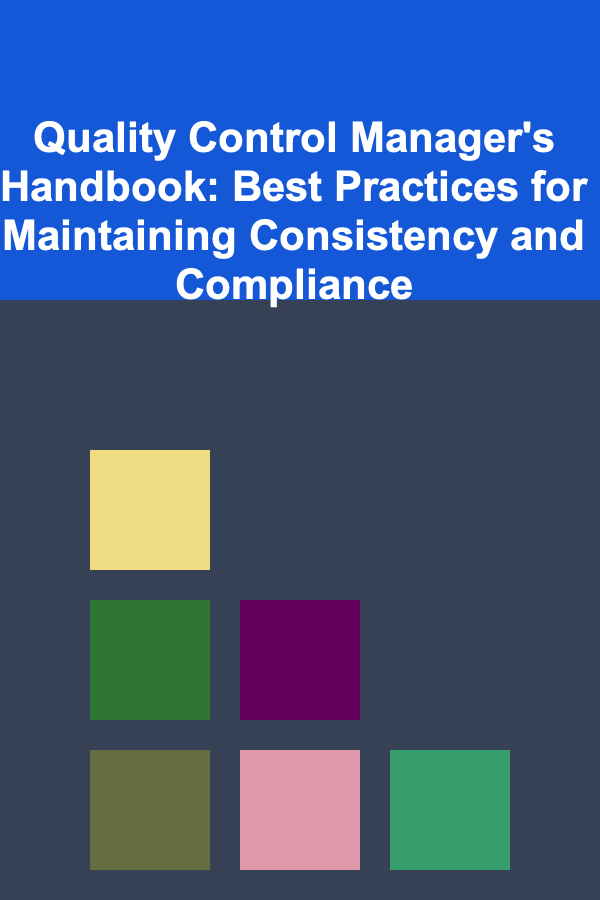
10 Tips for Legal Assistants to Build a Strong Professional Network
ebook include PDF & Audio bundle (Micro Guide)
$12.99$5.99
Limited Time Offer! Order within the next:
Not available at this time

In today's fast-paced legal industry, networking is a crucial tool for professional growth. For legal assistants, establishing a solid professional network can open doors to opportunities for career advancement, knowledge sharing, and personal development. Building a network not only enhances your skills but also builds your reputation within the legal community. Whether you're a seasoned legal assistant or just starting out in your career, understanding how to navigate and cultivate professional relationships can greatly contribute to your success.
This article provides 10 valuable tips for legal assistants to build and maintain a strong professional network that can benefit their career trajectory and the legal teams they support.
Start with Your Immediate Team
Building a strong professional network starts with the people you work with daily. Legal assistants are often at the heart of a legal team, collaborating with attorneys, paralegals, office managers, and other professionals. Establishing good relationships with your immediate colleagues can provide a solid foundation for a broader network.
Why It Matters:
- Trust and Rapport: Having strong working relationships within your team fosters trust, collaboration, and better communication.
- Opportunities for Growth: Colleagues are often the first to recommend you for projects or new roles within the firm or department.
Action Steps:
- Make an effort to engage with your colleagues, both professionally and socially.
- Be a team player by offering help and support when necessary.
- Attend team meetings and actively contribute ideas and solutions.
Attend Legal Industry Events and Conferences
Legal conferences, workshops, and seminars are excellent opportunities for legal assistants to expand their professional networks. These events bring together professionals from various areas of law, and attending them allows you to interact with peers, learn from experts, and exchange insights.
Why It Matters:
- Learning Opportunities: Conferences often feature presentations from leading professionals, which can deepen your legal knowledge.
- Face-to-Face Interaction: In-person networking at these events often leads to stronger and more genuine connections.
- Exposure to New Trends: Staying updated on industry trends will enhance your career and add value to your firm.
Action Steps:
- Identify and attend legal conferences, workshops, and other professional gatherings.
- Network with both speakers and fellow attendees.
- Don't hesitate to introduce yourself and exchange business cards or contact details.
Utilize Social Media Platforms
In the digital age, social media platforms like LinkedIn, Twitter, and even specialized online legal communities can be powerful tools for networking. These platforms allow you to connect with legal professionals worldwide, join discussions, and stay informed about legal industry news.
Why It Matters:
- Broader Reach: Social media expands your network beyond your immediate geographic location.
- Professional Branding: A well-maintained LinkedIn profile can showcase your skills, experience, and achievements to a larger audience.
- Engagement: You can engage in discussions on legal matters, stay up-to-date with the latest legal news, and interact with thought leaders.
Action Steps:
- Create and regularly update your LinkedIn profile to reflect your professional accomplishments.
- Join LinkedIn groups related to the legal industry and participate in discussions.
- Follow legal influencers, firms, and publications on Twitter or other social media platforms to stay informed.
Volunteer for Special Projects and Committees
Volunteering for special projects or committees within your organization or local legal community can be a great way to get involved and meet professionals in different roles. Whether it's organizing a charity event for the firm or working on a legal research project, volunteering allows you to build relationships outside of your day-to-day tasks.
Why It Matters:
- Showcase Initiative: Volunteering demonstrates that you're willing to take on responsibility and are proactive in your professional growth.
- Broaden Your Network: Working on cross-departmental projects exposes you to professionals from different areas of law and specialties.
- Develop New Skills: You'll gain new experiences and expertise that can enhance your resume.
Action Steps:
- Seek out opportunities within your firm or organization to take on new projects or initiatives.
- Participate in bar associations or local legal community events that allow you to volunteer your time.
- Get involved in committees related to areas of law you're interested in or wish to specialize in.
Engage with Legal Mentors
Having a mentor in the legal industry can be invaluable for your professional development. A mentor can offer guidance, provide career advice, and introduce you to influential people within the industry. A strong mentor-mentee relationship can help accelerate your career and provide clarity on professional growth.
Why It Matters:
- Experience Sharing: A mentor brings years of experience to the table and can help you navigate complex situations.
- Networking Opportunities: Your mentor can introduce you to others in the legal field, expanding your network.
- Personal Growth: A mentor can help you identify your strengths and areas for improvement, offering constructive feedback.
Action Steps:
- Approach a senior colleague or an experienced professional in the legal field for mentorship.
- Set clear expectations and objectives for your mentor-mentee relationship.
- Be open to receiving constructive criticism and advice.
Stay Active in Legal Associations
Joining and participating in legal associations can help you stay connected with the larger legal community. Many associations offer networking events, continuing education opportunities, and resources that are invaluable for career development.
Why It Matters:
- Professional Credibility: Being an active member of a reputable legal association enhances your professional standing.
- Networking Events: Legal associations often hold events or webinars that facilitate networking with industry professionals.
- Learning and Development: Many associations offer access to resources, webinars, and certifications that can boost your skills and knowledge.
Action Steps:
- Join local or national legal associations, such as the National Association of Legal Assistants (NALA) or the American Bar Association (ABA).
- Attend association meetings, webinars, or networking events.
- Participate in committees or working groups within the association to further build relationships.
Build Relationships with Legal Recruiters
Legal recruiters play a pivotal role in connecting legal assistants with job opportunities. Developing a relationship with a recruiter can help you stay informed about new job openings and give you valuable insight into the skills and qualifications most sought after by employers.
Why It Matters:
- Access to Opportunities: Recruiters often have access to job openings that may not be publicly advertised.
- Career Guidance: Legal recruiters can offer advice on resume-building, interview techniques, and skill development.
- Market Insights: They can also provide insights into the legal job market and trends that may affect your career path.
Action Steps:
- Reach out to legal recruiters who specialize in assisting legal assistants or legal support staff.
- Build and maintain relationships with recruiters by keeping them updated on your career progress and interests.
- Stay open to advice and career development suggestions from recruiters, as they are industry experts.
Leverage Alumni Networks
Your school's alumni network can be a valuable resource for building professional relationships. Alumni networks often host events, networking mixers, and mentorship programs specifically designed to connect former students with each other.
Why It Matters:
- Shared Background: As an alum, you share a common educational background with other members, which can make networking more natural and meaningful.
- Career Support: Alumni networks often provide job boards, career fairs, and mentorship opportunities.
- Stronger Connections: People tend to help others who share their alma mater, and being part of the network can open doors to professional opportunities.
Action Steps:
- Connect with your school's alumni office and join alumni events or programs.
- Participate in networking opportunities that bring together fellow alumni in the legal industry.
- Offer to help younger alumni entering the field, as this can also enhance your professional network.
Maintain Consistent Communication
Building a network is not just about making initial connections---it's about maintaining those relationships over time. Consistent communication is key to staying top of mind and building trust with your professional contacts.
Why It Matters:
- Stronger Relationships: Regular communication helps solidify your connections and ensures that you stay relevant in your network's mind.
- Trust and Loyalty: Being consistent in communication shows reliability and can lead to future collaborations or opportunities.
- Ongoing Learning: Staying in touch with your network allows you to exchange valuable industry insights and updates.
Action Steps:
- Set aside time to touch base with key contacts in your network every few months.
- Send occasional updates on your professional milestones or congratulate others on their achievements.
- Don't hesitate to reach out with a simple check-in or question about industry news or trends.
Be Genuine and Authentic
Finally, the foundation of any successful professional network is authenticity. People are more likely to engage with you if they sense that you are genuine, approachable, and interested in building a mutually beneficial relationship rather than just seeking favors.
Why It Matters:
- Trust: Authenticity builds trust, which is essential for long-term professional relationships.
- Meaningful Connections: Genuine connections lead to meaningful collaborations and opportunities that are more likely to last.
- Respect and Integrity: Being authentic shows that you value respect and integrity, key qualities for success in any professional setting.
Action Steps:
- Be yourself and approach networking with a mindset of building long-term relationships.
- Show interest in others' careers, ideas, and experiences, and offer help where you can.
- Focus on cultivating genuine connections rather than merely collecting contacts.
Conclusion
Building a strong professional network as a legal assistant is not just about attending events or collecting business cards---it's about creating and nurturing meaningful relationships with others in the legal field. By starting with your immediate team, attending industry events, utilizing social media, and engaging in mentorship and alumni networks, you can establish a broad and supportive network that enhances your career.
The tips outlined in this article provide actionable steps for cultivating a network that will open doors for new opportunities, learning experiences, and personal growth. By focusing on authenticity, consistent communication, and mutual support, you can build a network that will serve you throughout your career as a legal assistant.

How to Find Fun Ideas to Do with Family at Home
Read More
How to Train Your Dog to Follow Basic Commands
Read More
Maximizing Your Budget: Proven Ways to Save Money on Meal Delivery Services
Read More
Quality Control Manager's Handbook: Best Practices for Maintaining Consistency and Compliance
Read More
How to Use Table Numbers to Guide Guests Effectively
Read More
10 Tips for Future-Proofing Your IoT Architecture Design
Read MoreOther Products

How to Find Fun Ideas to Do with Family at Home
Read More
How to Train Your Dog to Follow Basic Commands
Read More
Maximizing Your Budget: Proven Ways to Save Money on Meal Delivery Services
Read More
Quality Control Manager's Handbook: Best Practices for Maintaining Consistency and Compliance
Read More
How to Use Table Numbers to Guide Guests Effectively
Read More